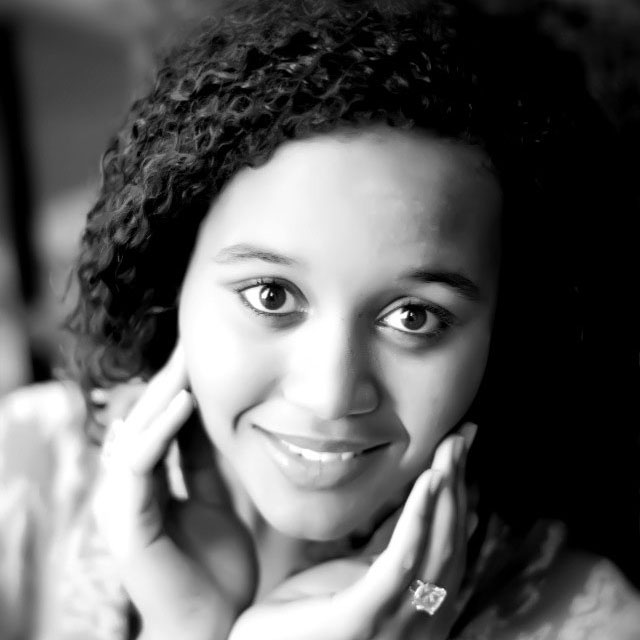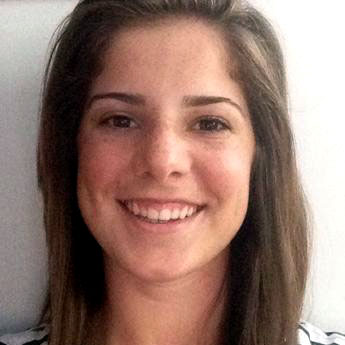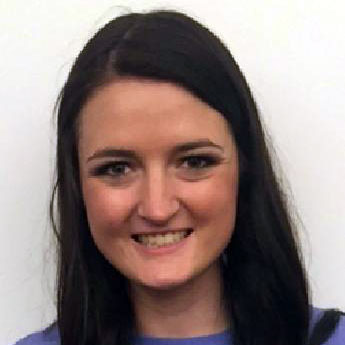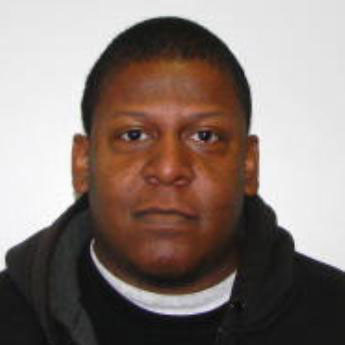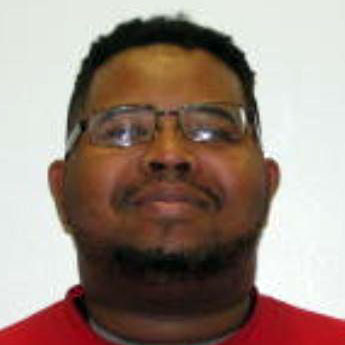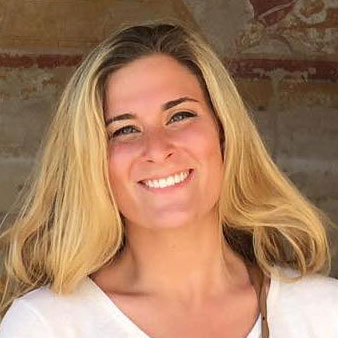PEAC 550: Service Learning Appreciation
The following comments were made by students who agreed to their posting on our website. All of these students have graduated (or will soon) with the undergraduate certificate in Peace, Justice & Conflict Transformation.
Service is not always about what you are giving to others. Sometimes people will give you the things that you need. In saying that, I will mention that you should not expect anything back from your service, that is what makes it all the more special when you do get something in return. I have been given lessons that I will carry my whole life, especially since I am now leaving college and moving into the next phase of my life. I will cherish the time that I spent at the library helping people to get what they need in order to live a better life here whether that be help with citizenship, programming about different nations, or simply a conversation. Dr, Russ, I thank you for this opportunity, and I cannot wait to continue on and hopefully put some good into the world before I eventually leave it.
I have volunteered for many organizations in the past, some by choice, others not so much. The Service Learning Project has been unlike any of my previous volunteer experiences for several reasons. One of the most obvious reasons why this experience differs so much from the others is the fact that I'm older, more mature, and my attitude towards the idea of volunteering is different, better. If I'm completely honest with myself I will admit that I have done volunteer work in the past for the wrong reasons such as to complete a requirement, resume help, and even just to say I've done volunteer work. I think that one thing that makes Service Learning different is the fact that I was able to properly research and choose an organization that had a mission and goals that aligned with my own. I chose where I wanted to be and the fact that I was familiar with the organization I choose made all the difference for me. Another big difference for me is the foundation that was laid by reading the book "The Call of Service." The book gave me a better understanding of service in general, different types of service, what it entails and what it means to be a service to others. Service Learning gave me a different outlook on service and really put into focus my goals and heightened my expectations for not only the experience but myself as well.
I’ve also learned much about my personal growth, my compassion for others, my inner peace, and especially my overall professional growth.
My experience has helped my inner peace and has opened my eyes to a new way of thinking about the problems we face in society but choose to ignore.
Understanding what the participants and the students go through not only enlightened me but has shown me how to walk in the shoes of the less fortunate.
This experience has convinced me that learning should be formal and informal. Service learning is important because it allows individuals to become aware of important issues, gain new perspectives and provides learning experiences for volunteers as well as individuals from undeserved groups.
It provided me with the skills necessary to approach future service experiences with a service learning perspective.
I do not wish to degrade the value of lectures, but the out-of-classroom component will help me apply what I’ve learned in the classroom to the real world in real-time.
I have learned that confidence is hard to achieve, but with friends, trust, and time it can be reached. My experience gave me confidence and the ability to look at myself as a true educator.
My experience has helped take the necessary steps to better my understanding of inner peace in myself and others.
It was a life-changing experience that opened my eyes to the other side of society, a less fortunate side. By losing myself in the service of others, I have indeed found myself.
Through this whole service learning experience, I’ve learned so many things that I wasn’t expected at the beginning of the semester. . . . I became a much better critical thinker, I gained a better understanding about peacebuilding, and I gained a better understanding about myself.
Doing this service also built up some of my confidence. After doing all those things, I realized I can do something well if I try hard.
Thanks to this book [The Call of Service by Robert Coles], during my service learning I really met some people who are like Coles, who truly loved peacebuilding and devote themselves totally into the non-profit work. Because of them, our society becomes better.
Peace and positivity kind of act like a virus. Once you get it you are completely affected by it, and it can you and make changes in your life. After the “peace virus” is in you and remains active, it allows you to pass it on to those around you.
It feels good to be a part of something so positive.
With so much unrest and tension within certain communities it can be easy to be pulled down into its dark depths of despair. I wanted to be a part of something so much bigger than just myself. I wanted to be a part of something that made me feel like I had a greater purpose in this world and within my community. I wanted to make a difference even if it was just to one person because if I could impact even one person, maybe they could pass that on to the next person and it could grow.
This service learning project has made one of the biggest and most unforgettable positive impacts on my life. SPAVE [Society for the Prevention of aggressiveness and Violence among Adolescents.] also gave me the chance to grow as an educator…. It made me a better conflict manager, it helped me become a stronger communicator, it helped to mold me into an assertive elder, gave me confidence and sparked a new passion for volunteering.
We don’t have to expect to do something monumental in the way of service. Spending time with these families and truly caring about them may be monumental to them.
I am extremely thankful for this course and thankful for my time at The Butterfly House. I did not know what to expect when I took my first peace class, and I was not sure if it was something I could continue or fit in, but that quickly changed. I feel like the courses have helped shaped me into a deeper critical thinker, and to challenge the society norms and values that are upheld today that are cruel or unfair to some people at the gain of others.
After completing the first two courses for the Peace, Justice & Conflict Transformation certificate, I realized just how useful and applicable this material can be in the worked field and everyday life. I believe that this information will be used throughout many experiences for the rest of my life.
One thing I have learned from years of work: if you aren’t happy doing what you do, it is probably not worth doing.
I took PEAC 325 two years ago and the thing from that class that has stuck with me the most is the idea that solving problems and transforming conflicts requires recognition that every party involved will be looking at the issue from their own lens.
At the beginning of my service project I knew nothing about the time and effort that went into the daily workings of a non-profit. As if it magically all came together, I thought that they were just organizations for college kids to volunteer at that served certain populations. What I learned what that if a person is really invested in the relationships and work they are doing, lives can change and differences can be made.
Structural violence is the very make up of how violence is systematically played out in society. People with mental and physical disabilities face this structural violence much of the time. Down syndrome students are consistently looked down on and mistreated.
This capstone course was very rewarding personally and professionally. I learned about myself and how I see the world, all the while doing what I love, service. Before I started this service learning project I had envisioned going to graduate school for anthropology. I saw myself going into the private sector and doing research. But now, with this certificate, I believe that I would like to go into diversity training once I graduate.
Recently, a police officer said to me, “It’s sad that you’re leaving, but I’m sure you’re tired of just riding around all the time [on police patrols] and not getting paid for it.” I’m not tired, nor am I joking this profession for the money. I’m doing this service learning experience to gain exceptional skills to grant me the knowledge necessary to grow and develop more readiness and abilities when I become an officer.
This experience has allowed me to meet a lot of great officers to help me get my foot in the door to becoming a great officer myself.
PEAC 350 gave me a real look into who I am, what I have to offer other people, and how to efficiently mediate conflict. In order to help others, you need to accept and appreciate yourself. I educated myself on my strengths, weaknesses, how to improve myself, how to truly listen and comprehend, and I learned conflict management skills.
I’m bitter about leaving service learning because I’ve made such lasting relationship with officers and I enjoyed this experience immensely.
Through personal history, college course, and my experiences at KRM [Kentucky Refugee Ministries], I've come to understand many new things about the world, others, and myself. My work at KRM gave me a connection to displaced peoples, who helped me to understand another side of life. I was able to see their hardships, even without knowing the specific details of their individual experience, and how hard they are working to make a good life for themselves in a foreign place. I could see in their children the fear of abandonment and mistrust in strangers in a way every different from American children, and terribly heartbreaking. I couldn't even console them properly because I had no way to communicate, but I tried my best, and I succeeded in some respects. I saw in the adults that were taking the ESL classes the fears about their new home, the excitement about their new freedoms, and their hopes for the future. I learned the important of simply filing paperwork to reduce the stress on the employees of a wonderful establishment that supported their clients so unabashedly.
I truly do not know how else to say this, but I REALLY enjoyed by [service learning] work. I loved walking into the library every Saturday morning and Tuesday afternoons not know who I was going to encounter that day. I loved seeing different people of all colors and backgrounds in one play, at one time enjoying each other's company and having genuine happy times with one another. I loved the randomness of Sophie [Maier], because y days at the library were never dull. This experience gave me the opportunity to learn about other people on such a personal level, which helps stick with me. I also was reminded how grateful and thankful I am for the opportunities I have had as an American citizen. I was constantly humbled throughout my days at the library and cannot wait to continue going back on Saturdays to help Sophie set up and take down for ECC.
Ultimately, my career is not going to involve making peace through policy or protest, but I think I will be able to bring peace to individual people with mental illness, which is a population that is very stigmatized and in need of peace. By helping these people come to peace with their illness and learn how to deal with it and live with it, I hope to bring some form of peace to their lives. I hope to spread the more traditional forms of peace through volunteering through different organizations, especially those who work with bettering the lives of women and families that have gone through the hardship of abuse. Working with the Center for Women and Families has made me realize how important the cause is. Ultimately, I hope to spread to peace and alleviate conflict with what I have learned in my courses and electives through the Peace, Justice, and Conflict Transformation Certificate Program here at the University of Louisville.
Another concept that applies to my time at the Center is the idea that you can spread peace in many different ways. I always thought spreading peace needed to be a large-scale project that involved ending war and changing national policies that oppress groups of people. Through this class [PEAC 325] I learned that peace can be spread by small acts that affect small groups of people. This is the kind of peace I spread during my work with the Center. I spread peace through helping out an organization that helps end violence in individual lives, while also fighting it through education in the Louisville Metro Area. I also tried to spread peace through just being a friendly face in the kitchen with the hopes that a smile and a hello could help out someone’s day in some way.
My time working through the steps involved in completing the Peace, Justice, and Conflict Transformation Certificate Program have given me so many skills and experiences that I will be able to use and look back on in the years to come. I am graduating in three weeks, and I know that the classes I have taken during the time spent in this program have taught me valuable techniques in how to approach communication and peace building that I can take forward into my professional and private life. Specifically, the time I have spent at the Center for Women and Families has been very influential on me. I have learned that it is important to get involved and volunteer at places like the Center because they do extremely important work that helps the entire communities and at the end of the day saves lives. My passion was serving an organization that helped fight domestic and sexual abuse, and I think I will try to help out the Center in any way I can, even with the 100 miles that will lie between us in the future. Peace is not an unattainable concept that only world leaders can promote and achieve. Peace is something that one can spread everyday with kind actions, words, and services to others. It can be achieved through major protest, boycotting brands, effective communication, international research, or just serving food to women and men who are in a really tough situation. We are all capable of achieving peace and spreading it in our daily lives, and that is the number one thing I am taking out of this experience as a whole.
I slowly drifted away from my service and started reading more of “The Call of Service by Robert Coles. As I read along I started to understand more how the service can make you feel this way and how working through it and finding a moral purpose will help you get more out of the service. One quote that represents how I felt when burnt out is “many doing service comment on their second thoughts, their lagging interest in the work being done, their feelings of being winded or out of breath, footsore and just plain beaten.”
“Burnout is a surrender, Dr. Martin Luther King” (cited by Coles). This speech opened my eyes as to why I can’t give into the surrender. I can’t create hazards in my work nor can I let depression from the work bring down my work ethics. I am not too old for this, I am young and have plenty of goodness to give.
I have learned a lot in my service work. Not just from this class [PEAC 550]. Over my years at UofL I have helped with refugee ministries, countless committees across Kentucky and have helped fight hunger, all of which have made me a better person and helped me better understand the world. The type of education students learn from this service isn’t something that can be taught in classrooms. The integrity and moral purpose you get out of the service can’t be matched. Each time I have represented UofL it has warranted praise and has opened the doors to all sorts of job prospects. Me working with Kentucky Harvest put me in contact with a wide range of nonprofits and outreach programs across Louisville. Personally, my experience will allow me to grow into a better person and has opened my eyes to new perspectives as well. Academically speaking this experience was like dipping my feet into the field work involved with sociology. It helped me learn things that can’t be taught in classrooms, it taught me to adopt and that I am not always going to have the answers but need to work through that confusion to find the answer.
Compassion: At FCC, volunteers are there because they want to be there. When I meet a new volunteer, I ask what made them decide to volunteer here. Most responses are to give back to the community. About two months into my service learning, I asked one of the interpreters this question. Her response was refreshingly different. She said it brought her peace. Further, she expressed that to give peace, we have to have peace. When she said this, I recalled when we discussed Thich Nhat Hanh in PEAC 325. He said that, “If we are not happy, if we are not peaceful, we cannot share peace and happiness with others, even those we love, those who live under the same roof. If we are peaceful, if we are happy, we can smile and blossom like a flower, and everyone in our family, our entire society, will benefit from our peace” (Hanh 1987).In this clinic, the inner peace many volunteers possess has blossomed into compassion.
Conclusion: During this experience, I met lifelong mentors and friends. I met people who made me think, “In ten years, I want to work as compassionately as you.” Their benevolence gives me a taste of where I will be. I still have six more years before I graduate medical school. During that time, there will be highs and lows. During the low points, I can reflect back to the level of compassion and joy my mentors had. I will always remember this service learning and what I learned from it.
The PJCT classes provided me with guidance. I have always known about my passion for global health. Learning about positive peace and peacebuilding in PEAC 325, along with the final project, guided me in turning my passion into reality during my undergraduate career. PEAC 350 instilled in me the importance of emotional intelligence and active listening. Along with PEAC 350, SOC 201 showed me how to recognize and manage my implicit bias in my personal and professional life. SOC 201 highlighted how people from different cultures adapt to new societies. PEAC 550 tied everything together. I applied the new skills and concepts I learned to this experience. I learned a lot about myself. My path to becoming a physician is clear and I am ready to walk it.
In reflecting on my overall experience within the Peace, Justice, and Conflict Transformation certificate program, I have identified the three most important lessons learned which I have applied to my everyday life: finding “inner peace” and “positive peace,” listening to understand instead of respond, and acknowledging the intersectionality of identities and movements.
I realized I was constantly surrounded by people who practiced finding inner peace on a daily basis, especially with the knowledge that social justice work can be draining as one can give so much to a cause or to other people without even thinking of giving to oneself. Last, but certainly not least, I found peace in conducting interviews and actively prompting others to find their own inner peace in retelling their story.
I truly do not know how else to say this, but I REALLY enjoyed my volunteer work. I loved walking into the library every Saturday morning and Tuesday afternoons not knowing who I was going to encounter that day. I loved seeing different people of all colors and backgrounds in one place, at one time enjoying each other's company and having genuine happy times with one another. I loved the randomness of M, because my days at the library were never dull. This experience game me the opportunity to learn about other people on such a personal level, which helps stick with me. I also was reminded how grateful and thankful I am for the opportunities I have had as an American citizen. I was constantly humbled throughout my days at the library and cannot wait to continue going back on Saturdays to help M set up and break down.
So, today is my last day here at the Family Scholar House and I have had an awesome time serving as a volunteer. For me, this was a humbling experience and a chance for me to grow as a person; to be able to surround myself with other people who are different from me, who come from different backgrounds, was an opportunity I'm glad I got to conquer. While here, I have been able to talk with people from all walks of life and to empathize with others that may not have the same opportunities as me. Completing my hours here, made me think of all the things I take for granted, like a roof over my head or the clothes on my back. I am so thankful for what I have and for the support system in my life; for the people who have paved the way for me to be all that I can be, today. Working with the Family Scholar House's employees has been a relaxed environment, with people who are loving and very helpful. Overall, if I had the chance to volunteer here again in the future, I would definitely not hesitate.
One of the last outreach programs I was involved in for the library was at the Derby Park Flea Market. This flea market is located in a large building, and filled with individual vendors selling a variety of items. This was a little different from the other flea markets and farmers markets I have attended in the past. Here, there were a people from many different backgrounds and cultures selling hijab’s and providing henna, selling a variety of ethnic cuisines, and some simply selling colognes and perfumes. We were stationed at this little table in the corner, asking people as they passed whether or not they had a library card, giving them information about upcoming events, and telling them about all the resources the library has to offer. Many times, my supervisor would speak to people in Spanish about the library if they did not speak English, which really helped us engage with people from Spanish-speaking countries. After we had set up, I looked at the vendor that were to our left and right. One of the vendors was selling different kinds of knives, swords, and accessories for these items. To our other side, there was a vendor that had a shooting range with realistic-looking BB guns that imitated semi-automatic weapons, but they used BB pellets instead of bullets. Down the hall from us, there was a gun show going on, that was teaching anyone who walked by gun safety, and the ways to own a gun and, as I heard multiple times through their intercom, “ways to avoid getting arrested.” My first thought was “we do not belong here”, and I suddenly became very uncomfortable in this setting, and it was clear that my supervisor felt the same way.
However, it was not a second later that I realized, I am exactly where I need to be. Here I am, representing the Iroquois Library as well as the Peace, Justice, and Conflict Transformation program at the University of Louisville. What a wonderful juxtaposition our presence brought to this place! We were surrounded by symbols of violence in our culture, objects that have created uncountable tragedies, wars, and displacement throughout the world. There we were, two women from the local library, trying to spread a message of peace, acceptance, and prosperity for the community in the midst of this. It was through this experience that I realized, though not to this very literal degree, I was doing this all throughout my service learning with the library. There are often so many negative opinions about the low-income, refugee, and immigrant population in the United States, and these opinions can have such a negative impact of these populations. The library makes a visible effort to make all of these populations feel welcome, and more than that, try to benefit their lives in any way that they can...
I would like to go back to the quote I began with, “Volunteering is the ultimate exercise in democracy. You can vote in elections once a year, but when you volunteer, you vote everyday about the kind of community you want to live in.” Through my experiences with service learning, I was able to dive deeper into the community that surrounds me. Often times, I feel like I have no voice when it comes to changing the often negative feelings towards refugees, or helping people break free of the cycle of crime, or even simply applying the knowledge I have gained throughout my four years of college. I have come to realize however, that a young college student can make a difference quite easily in their own community. I am voting for a better community through serving it, and encouraging other to do the same. Through my service learning, I have a gained far more insight than I ever have sitting in a classroom, because I have experienced first-hand the programs and the people in Louisville that are truly making a change, a peace-oriented change, to our community. I have often felt overwhelmed with the amount of change I have wanted to see in our city, state, and country which made it difficult to know where to start. Service learning was the best starting point I could have asked for, and it is because of this program that I will continue to serve my community, and change it from the ground-up.
Truly Benefiting or Doing Service?
When I first started my SLP at RJL, I thought that I would fail it. I felt this because I thought that this class was all about trying to learn and experience service. When reading The Call of Service, I realized that service is what we make of it. By saying this I mean that service is service if you feel like it is. I did not feel this way at first, but over time I realized what I was doing was truly benefiting everyone at RJL.
It took the discussion for this class, to help me realize this as well. After expressing to everyone that what I felt I was doing was not indeed service, a classmate told me that it was. She told me that if the workers and volunteers are appreciative of what I am doing at RJL, then it is service. This stuck with me, and I truly appreciated that bit of inspiration.
I always ask myself am I helping to make someone’s life better. Am I using my knowledge and resources to help someone less fortunate than me. I do not always answer yes, because I do not have any true service under my belt. For me to feel like I have benefited and been useful in life, I will serve others. Whether this is through animals or people, I will help anyone I can.
As you can see, social injustices and structural inequalities breed dependency upon federal and state funded housing facilities and other forms of assistance like Family Scholar House. In PEACE 325, one of the most impactful concepts that I learn during the course of taking the class, was a concept that in all of it’s essence, sums up exactly what structural inequalities are and how abrasive and concerning it is. This term is referred to as structural violence which is, “The increased rates of death and disability suffered by those who occupy the bottom rungs of society, as contrasted with the relatively lower death rates experienced by those who are above them.”
The service learning experience opened my eyes up to a social justice issue that means a great deal to me, considering I am an African American woman. I have always wanted to see change come in a way that ends the cycle of structural inequalities and structural violence which seems to be a covert form of oppression. In order for this to happen, a lot of work needs to be placed on individual responsibilities with the start being active listening skills. This is a core concept that I learned from taking PEACE 350, that centered around conflict management and resolution. People learn a lot about one another from simply actively listening to others when they talk about their problems and the life they are living.
The skill of active listening, learned from PEACE 350, gave me the opportunity to manage conflict within my own personal life, but also while I was at the Family Scholar House as well. Going back to the challenge I had of having to discuss with the superior employee who was evaluating me on my performance while I was there, allowed me the chance to put my listening skills to the test. I remember standing there with this individual, and having the urge to interrupt her while she was talking, but then remembering the skills I had learned while in class. This came in handy because I was able to listen to what she was saying, and once I did this, I soon realized that what she was saying was exactly what I was about to say. This made me giggle a bit, after the fact, but it really made me think about all the things that I had learned when it came to listening and how important this skill actually was. I think it saved me from looking like an idiot but also kept any conflict that could have risen, to the bare minimum.
Volunteering at the Family Scholar House has been very interesting and a time in my life that allowed me to grow into a better person. I have had the opportunity to be involved with a community of individuals who are all trying to reach for the stars, by bettering their circumstances. In completing the service learning project with the Family Scholar House, I have learned a great deal about myself and the world around me. I have learned how to adapt to different situations that may arise and what it truly means to be a volunteer. I have grown as a person, mentor, and friend because of the course preparation of having has the pleasure to take PEACE 325, PEACE 350, and PEACE 550. These courses should be made mandatory for every degree, major, minor, and even mandated as a general requirement within colleges and universities, across this Nation. These courses are so important in helping to resolve conflicts and they give insight into the many mistakes I’ve made when trying to solve conflict before taking these classes.
I was walking back to campus around 2 A.M. after lighthearted night out with some friends. Out of nowhere, one male and one female appeared out of nowhere and pulled a gun out on us. The male demanded our wallets and phones while the female stood silently behind us, also aiming a gun at us. In the situation, I felt oddly, almost eerily, calm, both externally and internally. The perpetrator demanded the watch of one of the people I was with and my friend started to talk to the perpetrator asking why he was robbing us, what he gained from it, and saying, "things do not have to be this way." The male edged closer to us and said that he must want to die if he does not want to give up the watch. My friend that the perpetrator was referring to was visibly angry. His fist was so tight that they were white, and he was shaking. At that point I placed my hand on his right shoulder and calmly, quietly, and directly said, “That watch is not worth your life.” I knew my voice reached him because I saw the anger in his eyes shift to recognition and his shaking stopped. He then took off he watch and gave it to the perpetrator, and we walked away from that situation unharmed.
I believe that a part of the reason I was able to stay so calm in such a high stress situation because of the skills that I learned from this class. I analyzed the situation, the needs and wants of the parties involved, weighed what was valued, and made a decision based on that. The fact that I am still alive today, I believe, is a testament.

